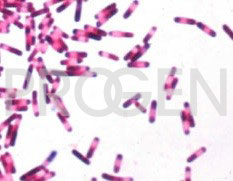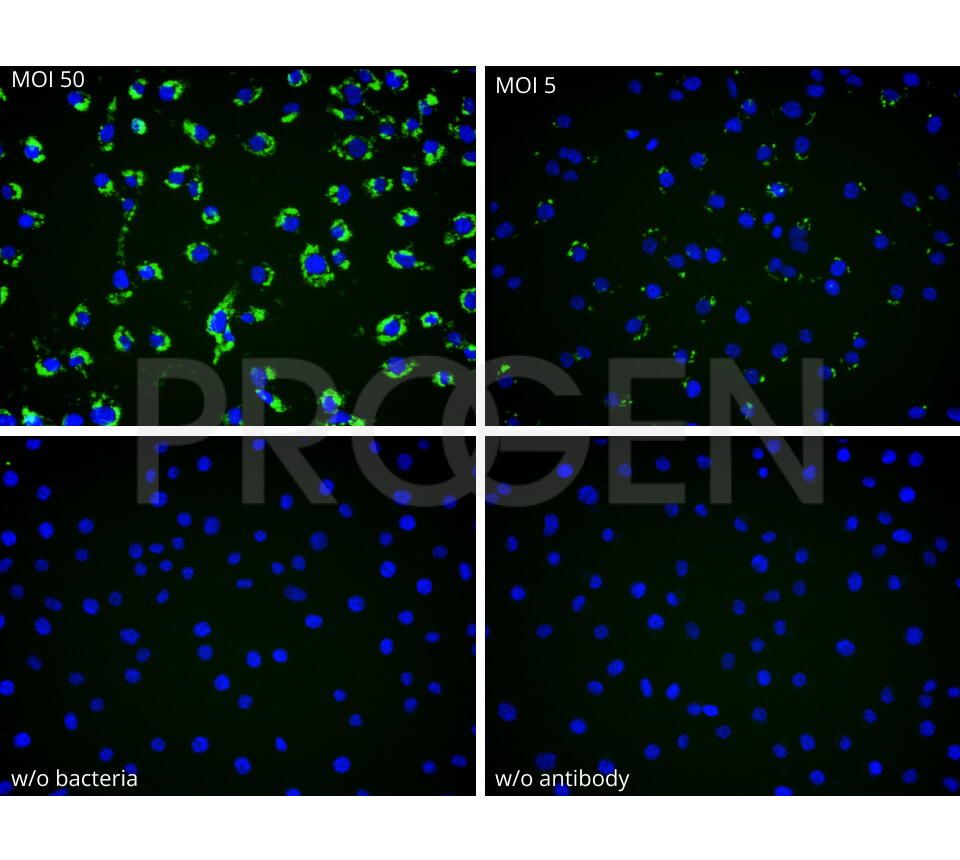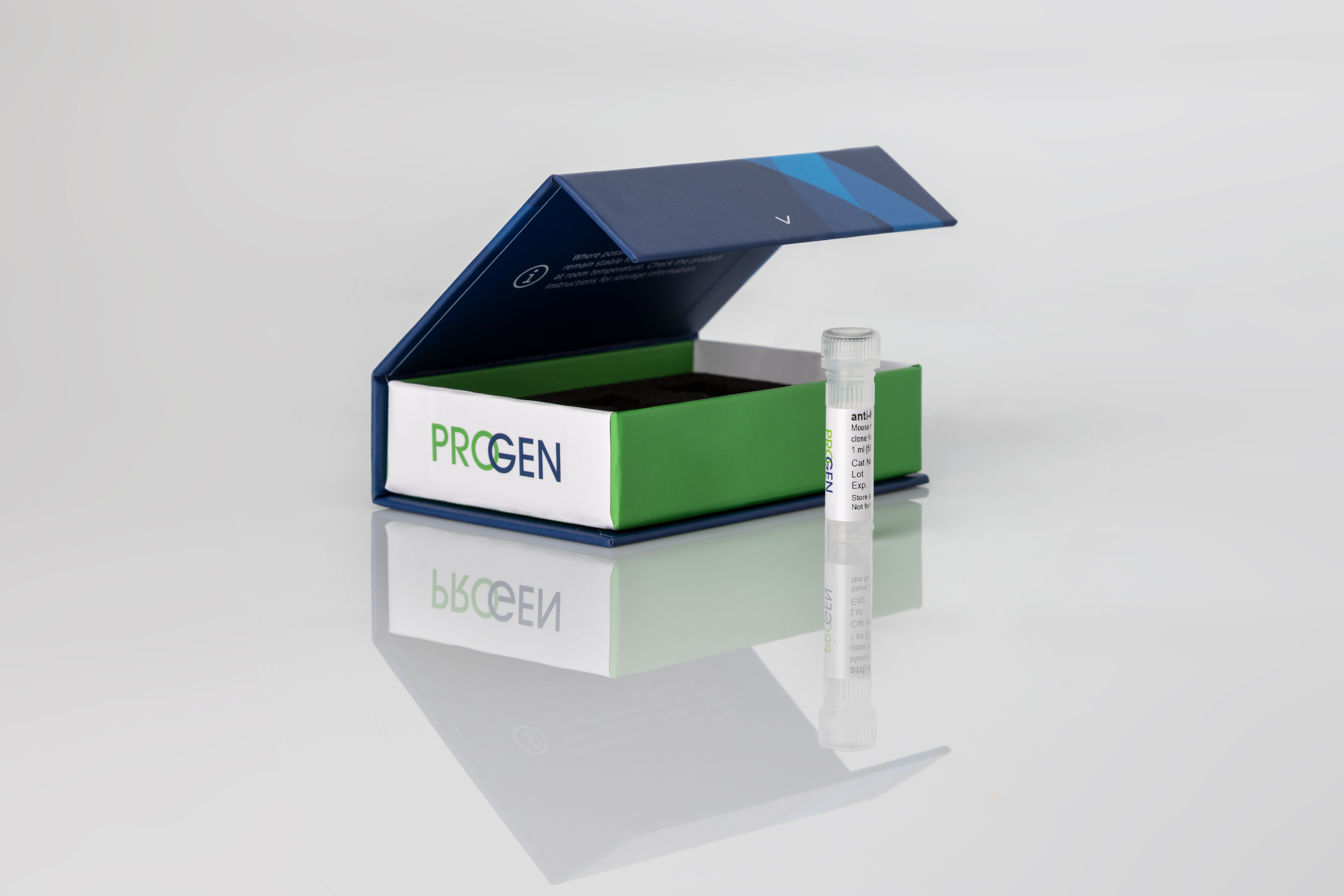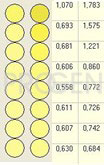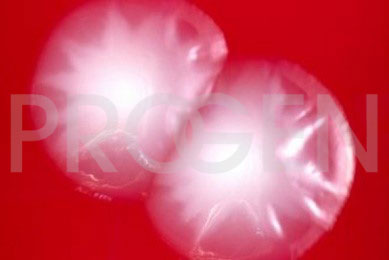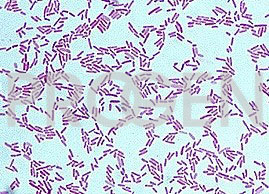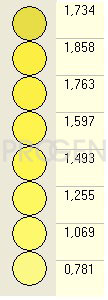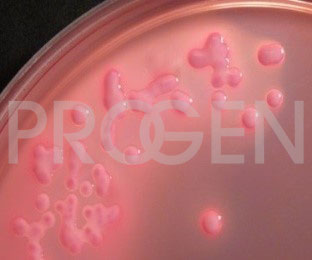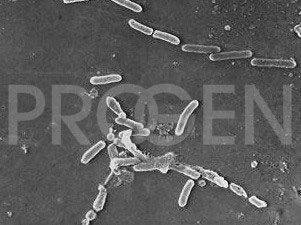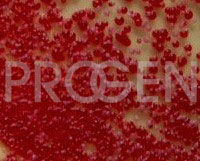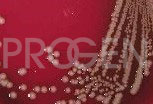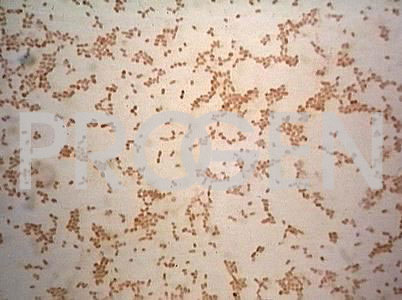anti-Clostridium difficile Toxin A mouse monoclonal, EBS-I-100, purified
- Mouse monoclonal
- Suitable for ELISA, ICC/IF and IHC
- Reacts with C. difficile
- Isotype: IgG3 kappa
Product description
| Quantity | 1 ml (100 µg/ml) |
|---|---|
| Antibody Type | Monoclonal |
| Host | Mouse |
| Isotype | IgG3 kappa |
| Conjugate | Unconjugated |
| Application | ELISA, ICC/IF, IHC |
| Purification | Affinity chromatography |
| Reactivity | C. difficile |
| No reactivity | V. cholera, P. aeruginosa |
| Storage | 2-8°C |
| Intended use | Research use only |
| Clone | EBS-I-100 |
| Immunogen | C. difficile toxin A |
| Concentration | 100 µg/ml |
| Formulation | PBS with 0.02% sodium azide |
Applications
| Tested applications | Tested dilutions |
|---|---|
| Immunocytochemistry (ICC)/ Immunofluorescence (IF) | 1:100-1:200 (0.5-1.0 µg/ml) |
| Immunohistochemistry (IHC) - frozen | 1:50-1:100 (1-2 µg/ml) |
| ELISA | Assay dependent |
Background
EBS-I-100 reacts with C. difficile Toxin A, but not with V. cholerae subunit a, V. cholerae toxin, Pseudomonas aeruginosa exotoxin A, H-LT and P-LT. C. difficile is a major nosocomial pathogen that causes antibiotic-associated colitis and mediates inflammatory diarrhea by releasing two large protein enterotoxins (toxin A and toxin B) that are able to disrupt intestinal epithelial cells via their transferase activity and ability to monoglucosylate members of the Rho family. C. difficile toxin A is a toxin that is composed of 39 repeats that are responsible for binding to intestinal epithelial cell surface carbohydrates. C. difficile toxin A causes significant apoptosis of colonocytes which contributes to the formation of ulcers and pseudo-membranes in a pathway that involves p38-dependent activation of p53 and induction of p21, leading to cytochrome c release and caspase-3 activation through Bak activation.
Positive control: Clostridium difficile extract or infected cells or tissue.
Downloads
Q & A's
Customer Reviews
Login
FAQs
The concentration of purified antibodies is mentioned on the datasheet.
For prediluted antibodies the concentration may vary from lot to lot. The concentration of these antibodies is not mentioned on the datasheet and can be requested at support@progen.com.
The supernatant format contains FCS proteins from cell culture medium supplemented with FCS.
The serum antibodies contain other proteins present in serum.
- Supernatant and supernatant concentrate: This format contains hybridoma cell culture supernatant. The antibody is not purified and the antibody concentration is not determined. The antibody concentration may vary from lot to lot. Therefore we recommend to titrate the optimal concentration for the application used for each new lot.
- Lyophilized, purified: This format contains purified antibody in lyophilized form. The reconstitution of this antibody is described in the datasheet. The buffer composition after reconstitution is also mentioned on the datasheet.
- Liquid, purified: This format contains purified antibody in liquid format. The concentration is mentioned on the datasheet.
- Prediluted, purified: This format contains purified antibody in liquid format. Most antibodies in this format are diluted to be ready-to-use for IHC with standard tissue. But some antibodies of this format need further dilution for IHC. This is mentioned on the datasheet.
Most of our liquid antibodies and reconstituted lyophilized antibodies may be stored for short term storage (up to 3 month) at 2-8°C. For long term storage we recommend to store the antibody at -20°C in aliquots. Please avoid freeze and thaw cycles.
Most of our conjugated antibodies should be stored at 2-8°C.
The individual storage conditions are mentioned on the datasheet.

